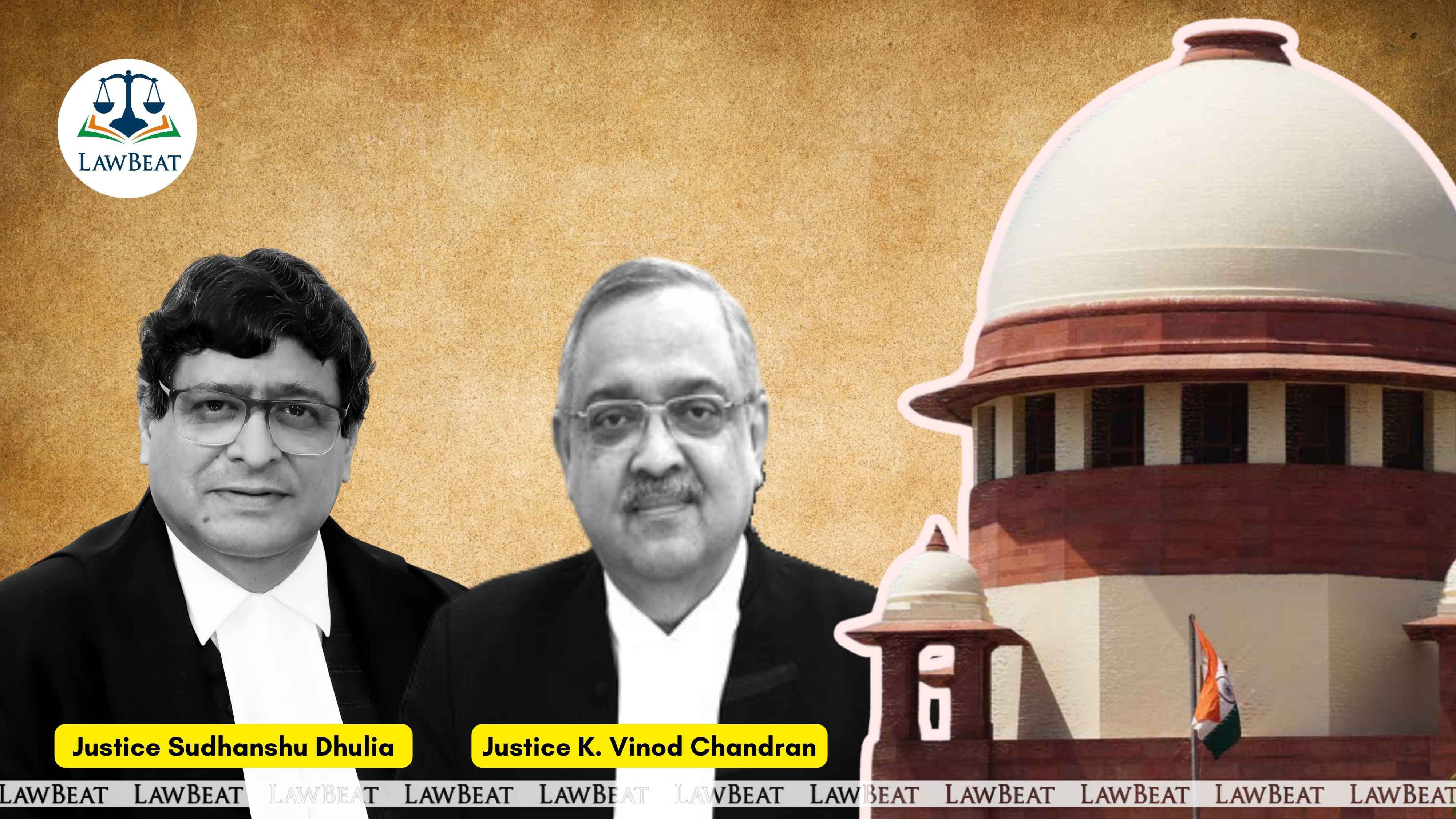Delayed Death Can Still Be Murder: SC

Court said it was not convinced with the argument that merely because death occurred 16 days after the incident, and that too as a result of septicemia, criminal liability of the petitioners would lie under Section 304 Part I, as opposed to Section 302 IPC
The Supreme Court has said that in every case of killing if death occurs after a lapse of time, it is not necessary that the case would be termed as culpable homicide not amounting to murder.
A bench of Justices Sudhanshu Dhulia and K Vinod Chandran dismissed a special leave petition filed by Gurmail Singh and another person against the Punjab and Haryana High Court's order converting the appellants' conviction from the offence of culpable homicide not amounting to murder to that of murder.
"We see no reason to interfere with the orders/judgment impugned passed by the High Court, in exercise of our jurisdiction under Article 136 of the Constitution of India," the bench said.
Having faced trial, the petitioners were convicted and sentenced to 10 years and seven years of rigorous imprisonment by the Sessions Judge at Barnala, Punjab, for offences punishable under Sections 304 Part I read with 34 of the Indian Penal Code and Section 27 of the Arms Act, respectively.
The prosecution's case was that petitioner no. 1 had fired at the deceased, resulting in his death, while petitioner no. 2 acted with the common intention of committing the said unlawful act and exhorted to kill the deceased. There were eyewitnesses to this effect. The prosecution proved beyond reasonable doubt how the incident occurred. Nevertheless, the trial court convicted the petitioners under Sections 304 Part I read with 34 of the IPC and Section 27 of the Arms Act, respectively, and not under Section 302 of the IPC.
Consequently, the appeal filed by the petitioners against their conviction and sentence before the high court was dismissed. The appeal filed by the State was allowed, and the finding on conviction was converted from Section 304 Part I of the IPC to Section 302 read with Section 34 of the IPC. The petitioners were sentenced to rigorous imprisonment for life.
"The High Court has examined each and every aspect of the matter and assigned the reasons while converting the findings with which we are in agreement. It is our considered opinion that the High Court has committed no error in altering the petitioners’ conviction under Section 304 Part I IPC to Section 302 IPC," the bench said.
The bench said it was not convinced by the argument put forth by the counsel for the petitioners that merely because death occurred 16 days after the incident, and that too as a result of septicemia, the criminal liability of the petitioners would lie under Section 304 Part I, as opposed to Section 302 IPC.
The bench pointed out that in Prasad Pradhan vs. State of Chhattisgarh (2023), this court held that there cannot be any stereotypical assumption or formula that in all cases where death occurs after a lapse of time, the offence would be that of culpable homicide not amounting to murder. The court observed that every case has its own unique fact situation that needs to be considered.
The court also referred to Khokhan vs. State of Chhattisgarh (2021), where a similar contention was raised before this court. In that case, the deceased was attacked in the abdomen by the accused and was taken to the hospital for treatment, where he died after three days due to septicemia caused by injuries to the small intestine.
Rejecting the argument that the accused would be guilty of the offence of culpable homicide not amounting to murder, the top court observed that there can be no absolute proposition of law that in all cases where the deceased died due to septicemia, the offence would fall under Section 304 Part I of the IPC, the bench pointed out.
The court thus dismissed the petitions filed against the high court's orders of September 16, 2024, and September 19, 2024.
Case Title: Gurmail Singh & Anr Vs The State of Punjab
